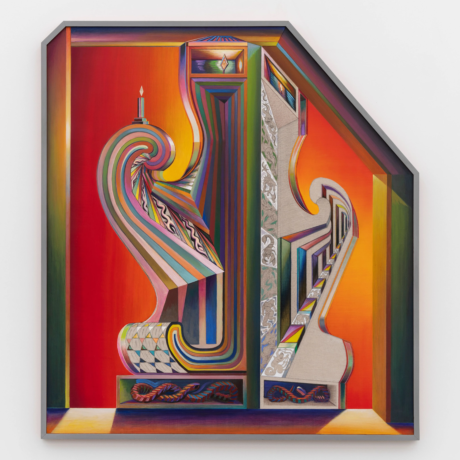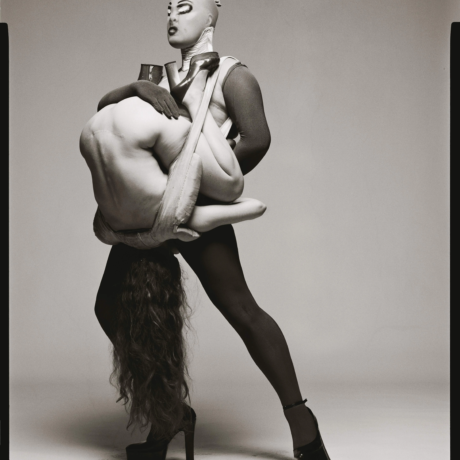Elephant writer Shanekia McIntosh speaks to award-winning filmmaker and music video director Zia Anger about her movie, My First Film.
Zia Anger is an award-winning filmmaker and music video director known for working with musicians Mitski, Jenny Hval, Maggie Rogers, and Angel Olsen. Her movie, My First Film, adapts her critically acclaimed live textual screening performance of the same name, delving into the behind-the-scenes of her first feature film, Always, All Ways, Anne Marie. This film tells the story of a young girl abandoned by her mother who cares for her dying father in a small town until she leaves after getting pregnant. Despite being completed, it was marked as “abandoned” on IMDb due to rejection from over 50 film festivals. The film is a meta-textual tragicomedy and poetic evocation, chronicling the trials of Vita and her small crew of eager friends as they aim to capture something “real.”
This theme of reality permeates the film, exploring failure, abandonment, ownership, and collaboration. Viewers may feel second-hand embarrassment for Vita and frustration with her increasingly complicated actions. After viewing the film, I walked away with one thought:, “making things is hard.” Zia’s film emphasises this with the line, “It happens to everyone—they just don’t talk about it.” I later discussed My First Film with Zia, a close friend and collaborator.
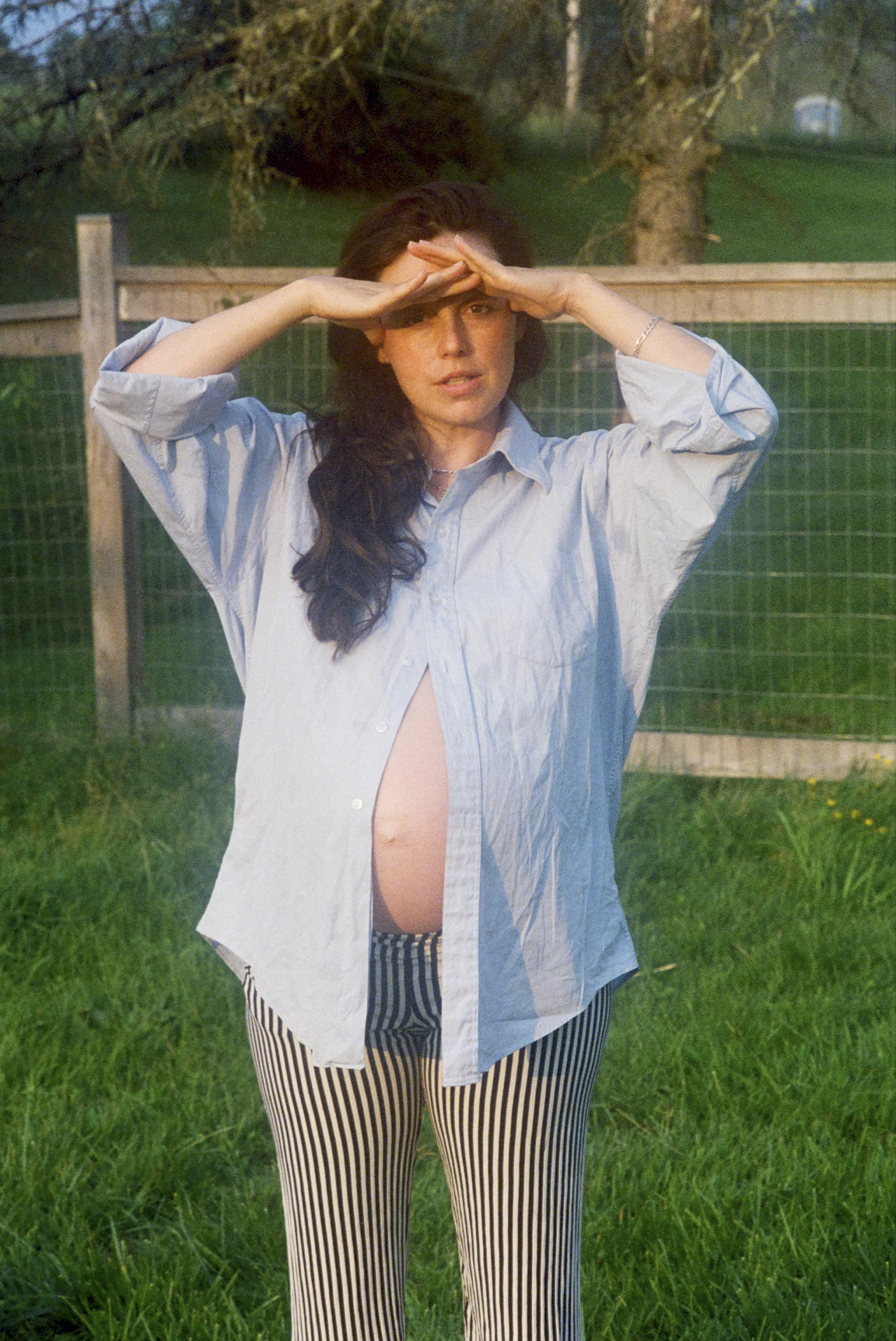
SM: My First Film is an adaptation of your live performance also named My First Film. You also have a short film titled My Last Film. What was the impetus for the development of the performance because I think that there’s a lot going on in the movie that connects back to it.
ZIA: The original film that I made which then became the performance and now the new film all talks about what I was dealing with at the time. The original film was made in 2012. When I started doing the performance, it came from a place where I was not able to talk about being in a lot of pain about where my life was and my career and the ways that things hadn’t worked out. I think that all these projects have been coming from the same place, and each version of them is maybe slightly less obscured.
SM: It is all connected – the performance, the new film and the original film.They are all coming of age, the coming of age story never ends. Watching My First Film and knowing your work specifically your short films My Last Film and I Remember Nothing, which are two works that really play with time and your music videos.
ZIA: Music Videos are interesting. The story I’m telling you though is in service of the image of the artist. Because not to sound too crass but they’re commercials for those artists. They’re not commercials for me. Making music videos never got you any money or they don’t really help you make feature films or have any career besides making music videos. Unless you want to be a music video director they are not in service of you, the director.A Jenny Hval video or even a Mitski video that is rough around the edges. Maybe aesthetically, you can see where the film ends and real begins. On the periphery of the shots. Like the Mitski videos. It’s messy because it’s highly choreographed and it’s messy in that the cinematography is often deeply in service of the choreography.
I guess with the short films, despite time and coming of age, I have never believed fully that I am an adult. I’m 38 years old and I am not a kid at all. I know I have responsibilities and what not but it’s almost like when I got a dog and I thought ‘who is letting me do this?’ I can’t believe I’m allowed to have a dog.
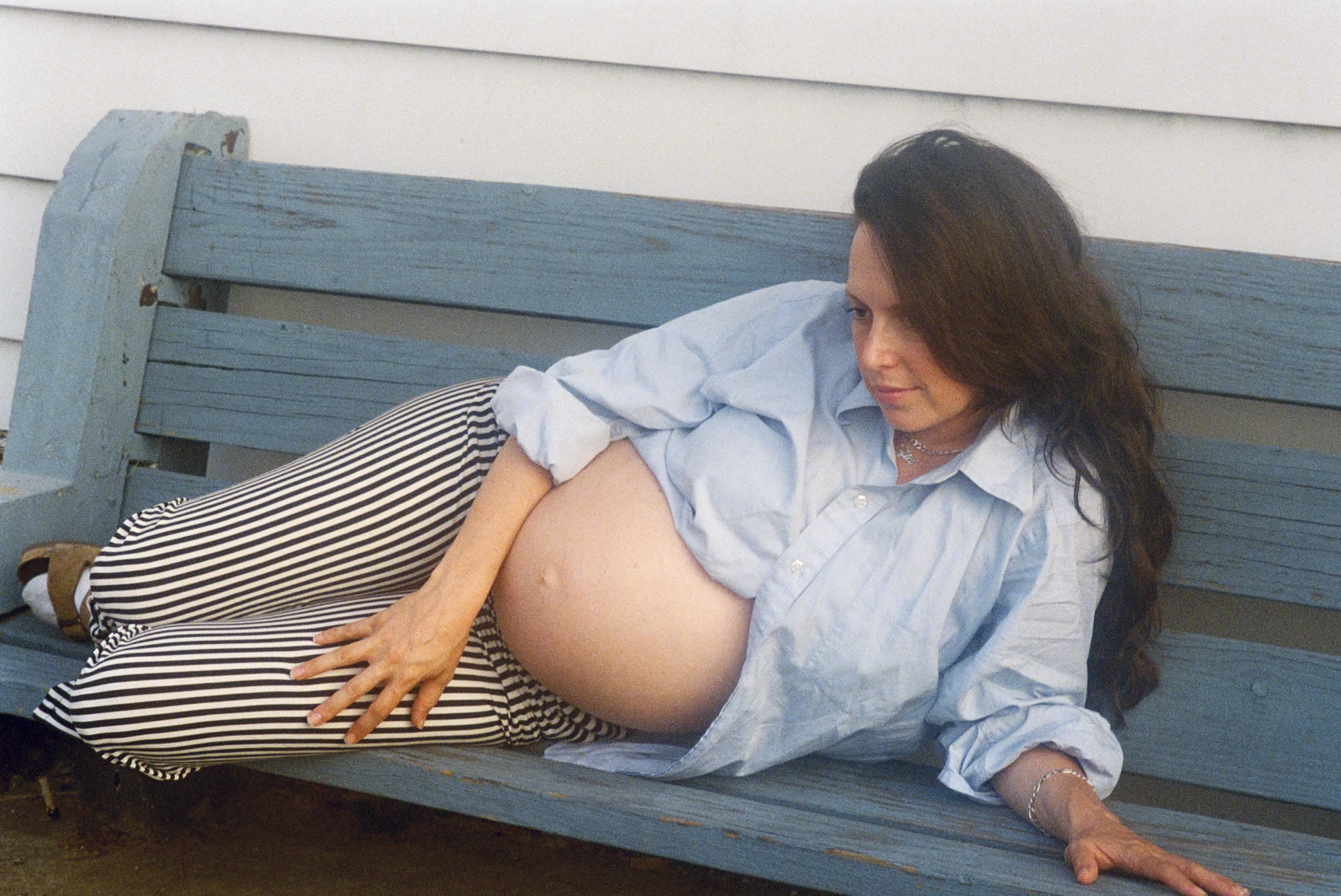
SM: You’ve always been vocal about the difficulties of being a female filmmaker. You’ve been vocal about going through failed pitches, fighting over budgets even for music videos, doing what you can to make short films and getting into festivals. I’m curious about what you felt after going through so many ups and downs and being vocal and maybe getting some backlash for that at times, you do this performance and this is the thing that someone comes along and goes ‘Hey! let’s make a movie.’
ZIA: I have no idea how that happened. That’s another one where I was like ‘How come I’m allowed to do this?’ I thought for a long time I felt like people weren’t giving me money because I’m a female filmmaker and they’re not interested in the stories but in reality the film industry is extremely capitalist and they’re interested in stories that are going to make them money.
There are a lot of different types of stories at this point. I say with air quotes a lot of “different kinds” or a lot of “different types”. If they can sell it, they’re going to sell it. It’s not that it’s difficult being a female filmmaker, it’s difficult to be a female filmmaker and make films that the subject matter or the story fall outside of the frameworks of capitalist society. I was under no presumptions that I was not beholden to the larger structure of capitalism the minute I started to develop this film and take money for it. In all my messiness, I’m completely not precious. And I was pretty aware that if I didn’t go and make this movie somebody, somewhere would make a movie, dealing with some part of this subject matter. You know it was always going to be sold out.
SM: My First Film documents Vita and a group of friends from college who after crowdfunding through family, friends, strangers are making a movie. The film within the film that Vita is working on feels very of that moment, the storyline is about a young girl in a small town who gets pregnant with her shitty boyfriend, the dying father and the mother who abandoned her.
ZIA: You and I came of age at a time when the internet was nascent in terms of putting yourself out there. A lot of it did feel incredibly individual. This is the thing I do and everybody is doing the same thing. It’s the proliferation where everybody is individual all the time so much so that everything is homogenous. The stuff I was going through. I thought I was the only person in the world that had gone through that. Abortions, affairs, coming from a strange family. It’s not true. Basically everybody has, at some point, had an abortion, or an affair or comes from a strange family. I tried to simplify it. And in simplifying it, I stripped away and that was real about me and also stripped away probably the most important part of me, which was that I like to laugh. That first film was so serious and there’s nothing funny to watch. The only funny thing about it is that it’s so tragically unfunny. This time around making this was really about I’m going to be so specifically and brutally honest in my own way.
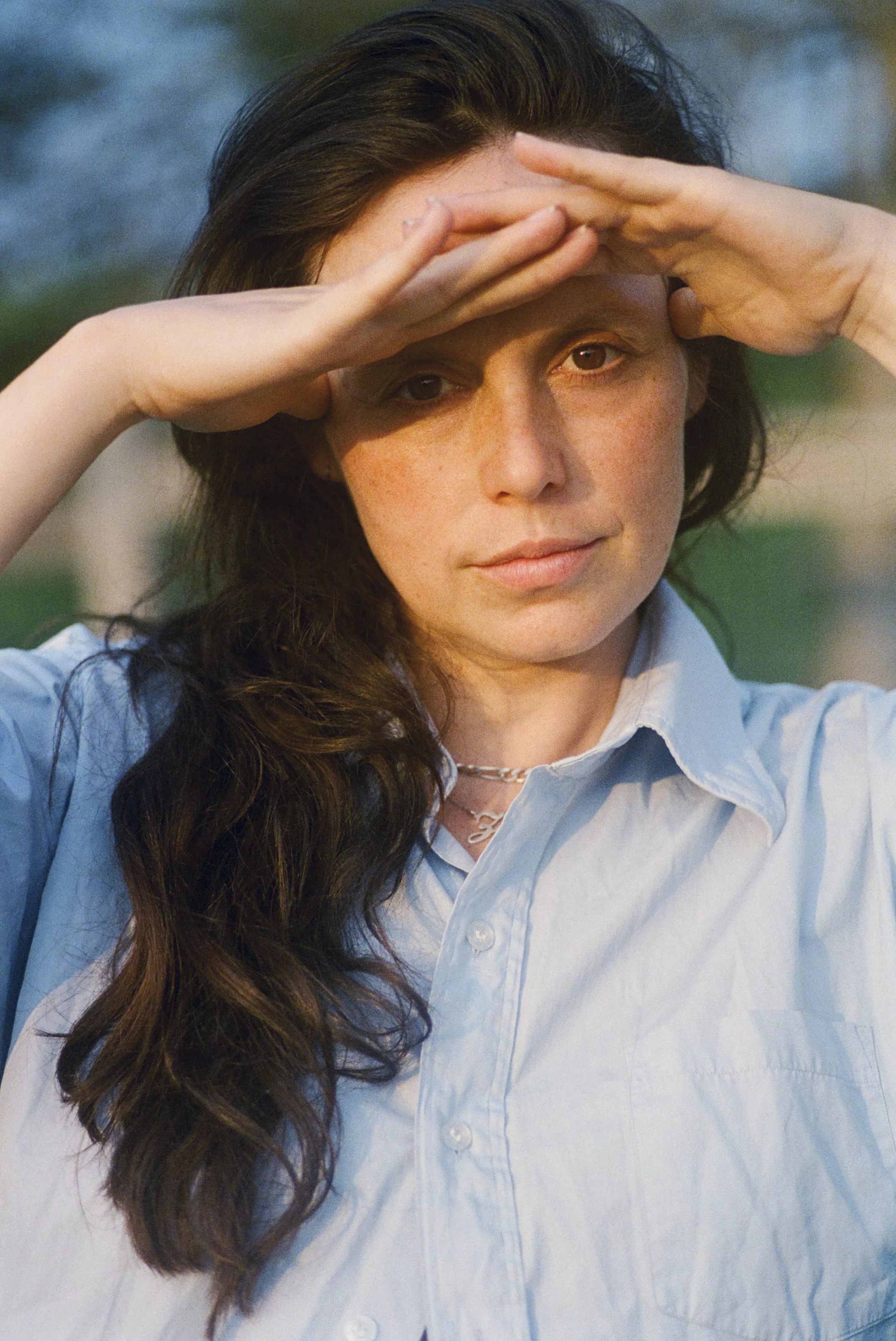
SM: I ran into someone who served as an inspiration for one of the characters who is in Vita’s film crew. They hadn’t seen the film yet and as we briefly discussed they made a point to say that it was your recollection of what happened. How do you perceive the reliability of Vita as a
character and yourself within the narrative?
ZIA: I think that she’s awful a lot of the time. I was pretty aware that I was writing a character that’s unlikeable. A lot of that is just reflecting back and looking at old videos of myself from that time and looking at the film I was making at that time. Remembering what kind of person I was and how truly happy or unhappy I was. Having a lot of love and respect for that person who was really naive and really, really trying but also being a pretty hard person. I think that being in so much pain, I probably didn’t act in a way that was respectful of the people around me and was probably pretty unreliable. I’ve made a real conscious decision in my life to have less pain and try to do things to be in less pain so that I can be more present and open to the people around me.
SM: There was an opportunity for you to make Vita a little smoother around the edges. The fact that Vita is a stand in for you. It feels very brave to not make Vita more likeable and plucky or whatever.
Zia: The thing I realized when I was writing and then had to realize it every moment until it was finished and I was really lucky to have people around me to tell me this: no matter what, nobody is going to feel bad for Vita. No one is going to feel bad for you, you’ve got to make this film. The film will come out. People will see it. It was really fucking hard. Every version of it tore me apart.
SM: I think there is one moment in particular. It’s the part I think of often and I felt the same way in the performance. Seeing it in the film. I thought a lot about the accountability of it.
ZIA: There were really close calls that are sobering for me presently but were not sobering for me back then. It took me a really long time to realize that some of the stuff I did was really bad. And also how lucky I was things were not worse than they were. Those are real wake up calls but sometimes wake up calls don’t happen the morning after. They happen years later with a lot of reflecting. It plays into her being unlikeable. I dislike the way I acted. Realizing that nobody’s going to feel bad for now because I get to make a film… it’s a pretty privileged position to be in.
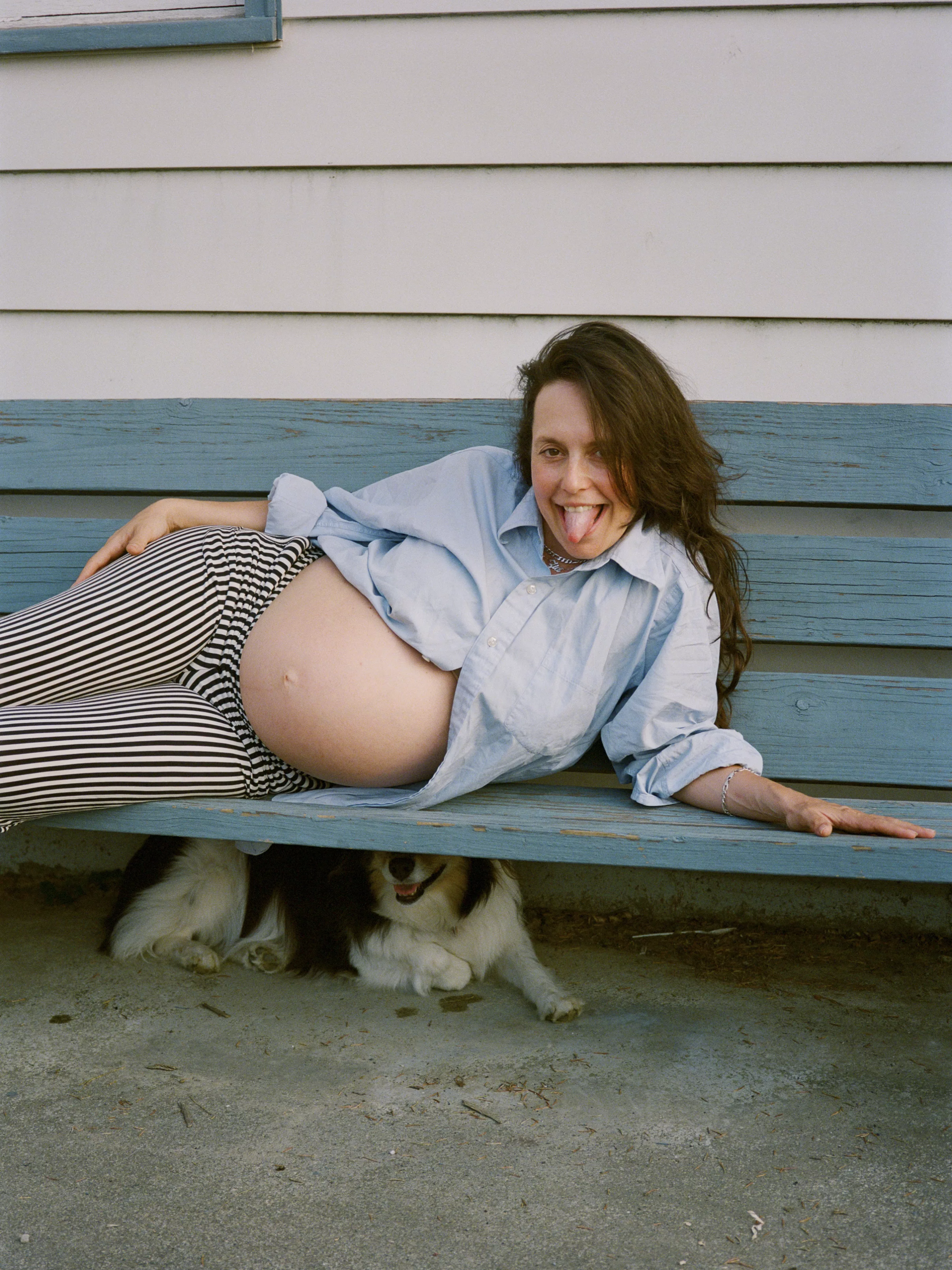
SM: The lines between Vita and you, Zia, are blurred in this story. How was it working with Odessa Young? She really nailed your voice.
ZIA: When doing the casting I wanted somebody that can just go to a lot of different places especially because I want this character not necessarily to be likable or perfect. Odessa is in real life incredibly beautiful and incredibly poised and Australian. When I watched her onscreen she can go to these places that I find to be pretty unlikable and pretty ugly. I didn’t necessarily have in mind a doppelgänger of me. I didn’t want a one to one in any way. Even the first time I brought her around my dad he was like “She’s prettier than you”. I was like I know, I realized that. I’m making a movie. I’ve always cast people that are prettier than me. Objectively, I get it. That being said, what was really interesting is that she’s like I want to do your voice. I didn’t know if that was a really good idea. Sometimes accents can be really bad or they don’t feel authentic to a real person. They just feel like a standard variation of something. The first time she did that was the first day on set and it was a lot of “what?” like, “why am I over there?”
SM: There is a shattering that happens. The film unravels as Vita unravels in her interpersonal relationships but also visually, it’s so meta…
ZIA: So meta. And all credit to the editors who worked on it because they really had to make
sense of a lot of these kinds of things that I constructed in my mind about how film would work and realized that this was really about at least for me personally was what it means to make something with other people. Because rarely do we ever make anything alone. I became really interested in what it means to make something And maybe what it means you make something
not in a traditional way.
SM: Vita faces multiple abandonments. Yet she never abandons the project.
ZIA: I think sometimes you just feel like you gotta make something. You’re just crazy about it and that’s something that I feel very strongly about. I gotta finish this or I gotta keep going with this. I have to keep going with that. That was that feeling, that urge to make something
unparalleled in my life. Literally unparalleled. Maybe it was equal to the urge to get a dog. That’s it, that’s it. Those two urges are very strong.
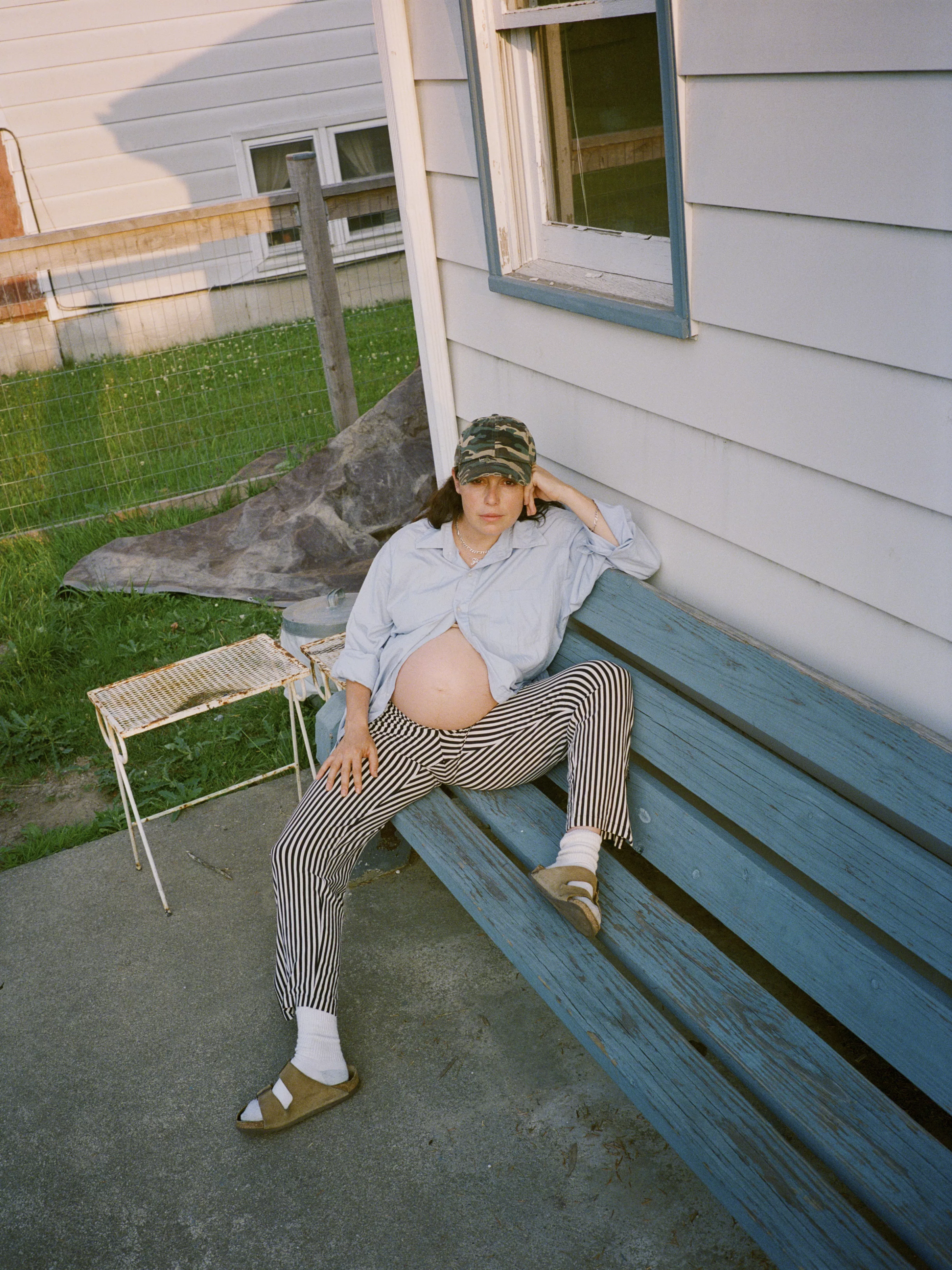
SM: The story continues after the final frame of My First Film. It doesn’t end there because you actually have another project, you’re pregnant. And when the film comes out, you will have probably given birth.
ZIA: Which is crazy because it’s like giving birth in a lot of ways. At once. I haven’t always been interested in having kids. I mean, obviously, watch the movie. I had a lot of time to process what i’m like when im the most present and when i’m the most happy. I wasn’t the natural urge I would say, like wanting to get a dog or make a film. It’s not like that crazy urge people talk about when it comes to kids. I just kind of realize that family and community is probably when I am at my happiest and when I am at my most present and my most peaceful.
SM: Are you worried about the film being too esoteric?
Zia: People binge watch 10 seasons of Vanderpump Rules in like two months and understand. I’ve watched Vanderpump since it started coming out. The whole Scandoval happened and people binge watched the entire 10 seasons to catch up with it and were pretty on top of it. They saw it all, people understood complicated things. They understand esoteric things. There’s nothing about Vanderpump Rules for instance, that’s relatable until you get to the real human stuff about it. It’s not relatable that they’re all being filmed for a reality tv show by a film crew at a restaurant they don’t actually work at. That’s not really what’s relatable. What’s relatable is two people having an affair that’s super relatable So I think we are watching complicated, esoteric things. All the time. It might be really complicated and really esoteric, but I think that humans are pretty capable of figuring it out.
‘My First Film’ opens in select theatres on August 30th and will be streaming globally on MUBI from September 6th.


